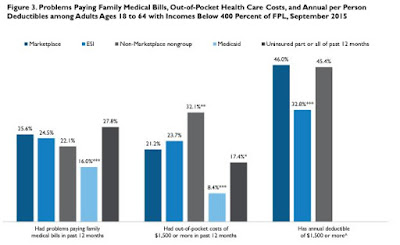Princess Health and Doctors trying to reverse course on opioid prescriptions can find it difficult because of addiction, shortage of good alternatives. Princessiccia
behavioral health chiropractors doctors hospitals marijuana pain management physicians prescription drug abuse prescription drugsThe epidemic of opioid overdoses, 60 percent of which are blamed on abuse or misuse, "is changing prescribing habits, but there's still a lack of other pain medications, access to alternative therapies and knowledge among primary-care providers about multidisciplinary approaches to pain management," Modern Healthcare reports.
"The medical community turned to opioid prescriptions to address a condition many believed had been ignored or undertreated," Steven Ross Johnson writes. "And the dependence on fee-for-service payments also made it easier for providers to whip out their prescription pads rather than spend the time to help patients find alternatives. But experts now say the over-reliance on opioids for chronic pain, despite a lack of evidence on their efficacy and impact, was misguided and has distorted the public's concept of what pain is and what it means to be treated."
But reversing course can be difficult because many patients "have built up resistance to opioids and seek treatment while addicted or at risk of addiction," Johnson reports. He quotes Dr. Neel Mehta, medical director of Weill Cornell Medical College's Pain Medicine Center, which specializes in treating long-term pain as saying many come there because their doctor won't write them another prescription: �So we're sort of left with them expecting to get prescribed an opioid and we have to then calmly redirect that.�
In March the federal Centers for Disease Control and Prevention "recommended doctors prescribe alternative treatments such as over-the-counter medications, cognitive behavioral therapy and exercise before resorting to opioids. Weeks later, the Joint Commission [which accredits health-care facilities] clarified its 2001 standards for pain management and treatment to stress that opioid use was neither required nor specified for treating pain."
Other alternative treatments chiropractic care and the use of anti-inflammatory and neuropathic medications and even vitamin supplements, Johnson notes. "The problem is that few carry the punch or, for some, the pleasure of opioids. . . . The use of medical marijuana, meanwhile, has increased in several parts of the country. It's approved in 38 states and the District of Columbia for patients with illnesses such as cancer and HIV. But only some of those states allow the use of marijuana to relieve chronic pain." Kentucky does not.
"The medical community turned to opioid prescriptions to address a condition many believed had been ignored or undertreated," Steven Ross Johnson writes. "And the dependence on fee-for-service payments also made it easier for providers to whip out their prescription pads rather than spend the time to help patients find alternatives. But experts now say the over-reliance on opioids for chronic pain, despite a lack of evidence on their efficacy and impact, was misguided and has distorted the public's concept of what pain is and what it means to be treated."
But reversing course can be difficult because many patients "have built up resistance to opioids and seek treatment while addicted or at risk of addiction," Johnson reports. He quotes Dr. Neel Mehta, medical director of Weill Cornell Medical College's Pain Medicine Center, which specializes in treating long-term pain as saying many come there because their doctor won't write them another prescription: �So we're sort of left with them expecting to get prescribed an opioid and we have to then calmly redirect that.�
In March the federal Centers for Disease Control and Prevention "recommended doctors prescribe alternative treatments such as over-the-counter medications, cognitive behavioral therapy and exercise before resorting to opioids. Weeks later, the Joint Commission [which accredits health-care facilities] clarified its 2001 standards for pain management and treatment to stress that opioid use was neither required nor specified for treating pain."
Other alternative treatments chiropractic care and the use of anti-inflammatory and neuropathic medications and even vitamin supplements, Johnson notes. "The problem is that few carry the punch or, for some, the pleasure of opioids. . . . The use of medical marijuana, meanwhile, has increased in several parts of the country. It's approved in 38 states and the District of Columbia for patients with illnesses such as cancer and HIV. But only some of those states allow the use of marijuana to relieve chronic pain." Kentucky does not.










